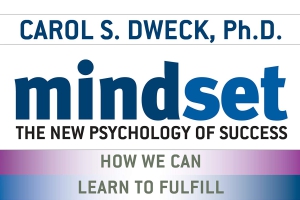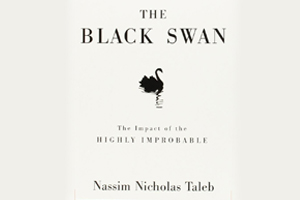In the investment world, when the going gets tough you turn to the Oracle of Omaha. The teachings of Warren Buffet, the man who exemplified successful investing and inspired an entire generation of investors to turn towards equity markets, can be very instructive in the current times when the world is witnessing an unprecedented turn of events. Markets are currently witnessing heightened volatility and the near future remains uncertain. In such an environment, it would be good to get back to basics and understand the very foundation of value investing. In this book, Mary Buffett and David Clark create a unique investment guide that explains the winning strategies of the master.
Key Takeaways
- Before buying a stock, it is important to first determine what you want to own, understand why you want to own it and then wait for a good price. The price that you pay for an investment will determine your rate of return. Always aim to pay a low price for a good investment.
- If you are looking to generate good long-term returns, then it is not sufficient that the earnings and profitability should be above average. They should be predictable and show consistency over a period of time.
- Warren Buffett does not calculate the intrinsic value and then buys at half that price. Instead, he calculates the Expected Annual Compounding Rate of Return, compares it with other available investments, and buys the best one.
- You should invest in a company only if it has excellent and consistent business economics, and the Expected Annual Compounding Rate of Return is 15% or higher. Once you buy such a company then just hold on to the stock for as long as possible to maximize compounding.
- Compounding is the best way to get really rich. It is important to stay invested for the long-term and let compounding work its magic on your investments. It is also important to limit your number of transactions in order to minimise taxes and fees.
- When building a portfolio, it is better to hold on to a great business with a predictable, consistent 20% return over a quick 35% gain. This is because it is very hard to find investments that can yield such quick gains and selling in the short-term would mean that you have to pay more taxes. It would also mean that you might be investing in stocks that are already trading above their intrinsic value.
- Consumer monopolies, or sustainable competitive advantages, are the key to long-term, consistent, above-average returns on the stock market. Test: "If you had access to billions of dollars and the five best managers in the world, could you launch a company to compete with the business in question?" No = good.
- Dividends only make sense if the company has low returns on equity or only minor growth prospects. Share buybacks only make sense if they happen at prices lower than intrinsic value. Acquisitions only make sense if the acquired company is also an excellent business.
- Excellent businesses are often industry leaders and tend to have low debt levels, large cash flows, a strong brand name, low maintenance & running costs, high quality products & services, an increasing book value, strong earnings, shareholder-friendly management, and a consumer monopoly.
- Other People's Money is the only way to become ridiculously rich from investing. The books states that "in order to become a billionaire you have to get other people to give you their money to invest.”
Business perspective investing is “Warren's Winning Way”
“Warren's Winning Way” is first and foremost a question of determining what you want to own, arriving at a price that you are willing to pay for it and then waiting for that price. Over and above everything else, this price must make business sense. It is futile to commit capital to a stock that does not make 'business sense'. But, how do you arrive at this value? For an investment idea to “make sense”, one should be able to project a future value for the business and determine when the said value may be reflected in the stock price. If the value is reached within a timeframe that ensures a minimum compounded annual return of 15%, then it “makes sense”. For example, say that a stock is trading for $10, and your analysis tells you that it will be worth $50 in 10 years. That translates into a compounded return of 17.46% annually. Thus, it makes 'business sense'.
However, it is important that the future business value is predicted accurately. To be able to accurately project a future value for a business i.e. a value that is at least ten years out, the business must be simple and predictable.
Warren's “seven secrets to successful investing from a “business perspective”
- Invest only in companies whose future earnings can be reasonably predicted.
- Businesses that can be easily predicted generally have excellent business economics.
- Excellent business economics are usually evident by consistent high returns on equity, strong earnings, a consumer monopoly, and shareholder-friendly management teams.
- The price you pay will determine the return you can expect on your investment.
- Choose the business you would like to invest in and let the price of the security determine the purchase decision.
- Investing in the right businesses with exceptional economics at the right prices will produce an annual compounding return of at least 15%.
- You must understand that there is a difference between the price you pay for a stock and the value of the stock.
The Excellent Business' Expanding Value
Warren discarded the concept of the 'static value securities', i.e. a company heading for liquidation but trading at a price below liquidation value (hence allowing investors to capture the proceeds) and moved towards the expanding value philosophy taught by Philip Fisher and Charlie Munger. When making an investment decision, it is better to look out for excellent businesses that are destined to experience long-term economic growth instead of focusing on half-dead businesses that already have one foot in the grave.
“The earnings of the company would continue to grow, thus projecting and expanding its estimated rate of return”.
Businesses whose value continuously expands are often excellent. Such excellent businesses often possess several of the below characteristics:
- An identifiable consumer monopoly, e.g. a brand-name product or a key service that people or businesses are dependent on.
- A strong and upward earnings trend.
- A conservative capital structure, i.e. low or no debt.
- A history of consistently generating high returns on equity.
- A history of being able to retain earnings/profits.
- A history of being able to reinvest retained earnings in new opportunities, expansion of operations and/or share repurchases.
- The value-added by retained earnings will increase the market value of the company.
- The business is free to adjust its prices to inflation.
- Low capital expenditure requirements.
In short, it is wise to invest in businesses that seldom require replacement of plant and equipment, that don't require ongoing R&D, that produce products that never go obsolete, have little or no competition and excellent management teams.
“Basic businesses with products that people never want to see essentially change. Predictable product, predictable profits.”
Excellent businesses that you should invest in
There are primarily three types of excellent businesses that fall into one of two categories:
- Consumer monopolies or
- Toll bridges
“A consumer monopoly is an excellent company that has a brand-name-type product like Coca-Cola; a toll bridge is an excellent company that provides services that other businesses have to use if they want to do business.”
Consumer monopolies usually have a strong brand name and connect with the consumer such that the users of the product have little or no incentive to switch from one brand to another. Usually, it takes a number of years to inspire consumer loyalty. However, once established, it becomes difficult for competitors to dislodge. Toll bridges act like the pipes of the economy. These companies are essential for the efficient working of an industry such that other businesses can function only if this business provides its services.
The three types of businesses are:
- Businesses that make products that wear out fast or are used up quickly, that have brand-name appeal, and that merchants must carry or use to stay in business.
- Businesses that provide repetitive communication services, which manufacturers must use to persuade the public to buy their products.
III. Businesses that provide repetitive consumer services that people and business are consistently in need of.
When you are able to spot any one of these types of businesses that possess several of the above characteristics, then it is time to bet big. It is better to hold a concentrated portfolio consisting of high-upside ideas that you understand well.
Once the buying decision has been made, the next important decision is 'when to sell'. Trying to time the market is a futile exercise, one that seldom yields any benefits. Instead, stay tethered to your expected rate of return and hold for as long as possible unless there are material changes in the stocks expected return. Basically, let compounding do its magic.
“Don't try to buy at the bottom and sell at the top. This can't be done – except by liars”
Warren Buffet has been one of the biggest proponents of value investing. However, instead of focusing simply on intrinsic value he focuses on compounded value. Compounding is mathematical concept that ensures that when you make an investment your principal invested, as well as, the earnings generated from the principal earn interest. This can exponentially increase the yield potential of a stock. The mutual fund industry offers several products that follow a similar philosophy when it comes to investing in equities. Most equity mutual funds have a long-term investment philosophy where they invest in good companies and try to reap the benefits of compounding. Additionally, the systematic investment plan (SIP) route allows individuals to periodically invest a fixed amount of money in a fund of their choice thereby, giving them an opportunity to benefit from the power of compounding and rupee cost averaging
An investor education initiative
All Mutual Fund Investors have to go through a onetime KYC process. Investor should deal only with
Registered Mutual Fund (RMF). For more info on KYC, RMF and procedure to lodge/redress any complaints –please visit on https://www.edelweissmf.com/kyc-norms
Mutual Fund Investments are subject to market risks, read all scheme related documents carefully.
Trending Books
MUTUAL FUND INVESTMENTS ARE SUBJECT TO MARKET RISKS, READ ALL SCHEME RELATED DOCUMENTS CAREFULLY.













